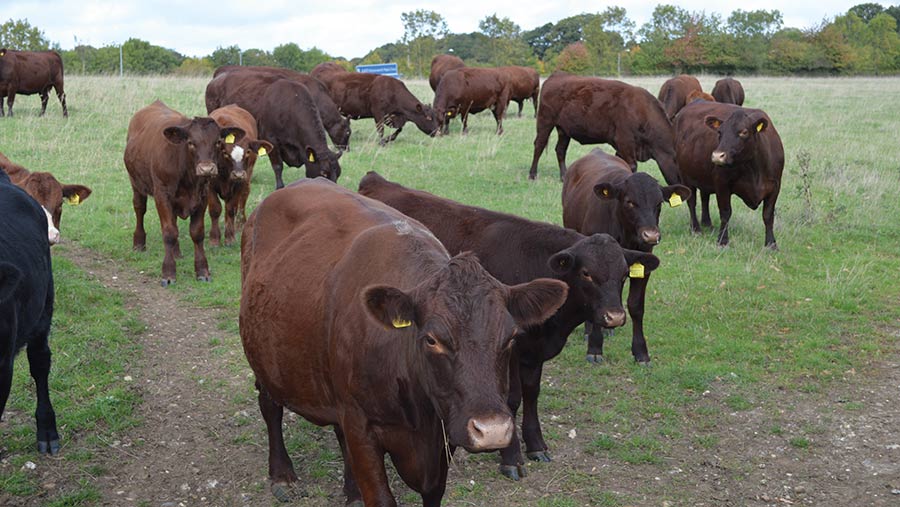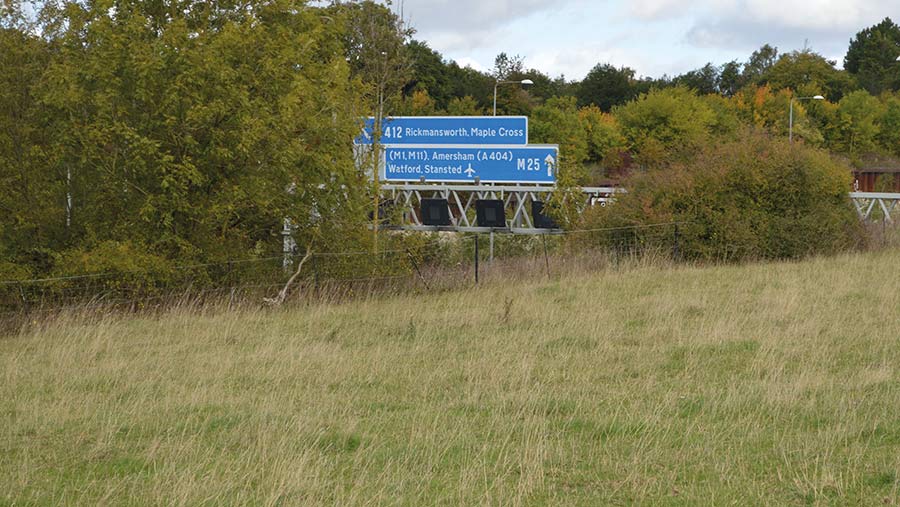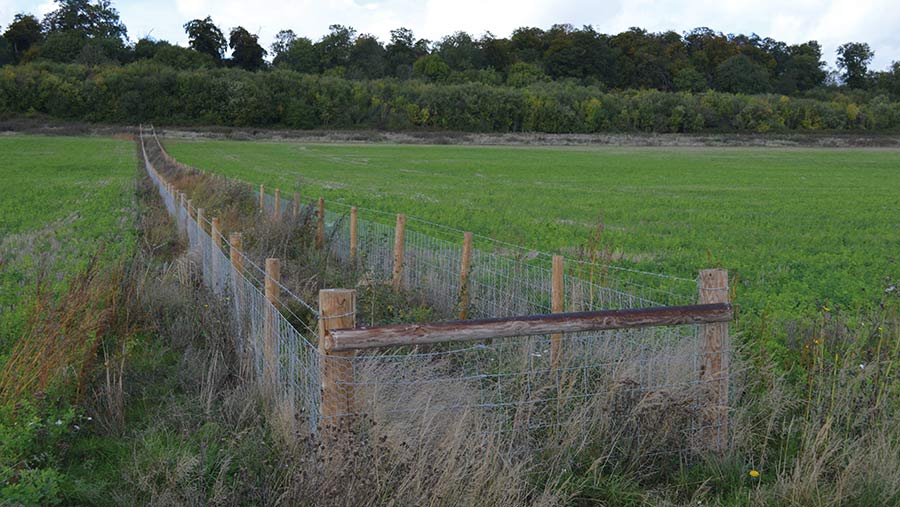Farm within London’s M25 motorway set for organic conversion
 Sussex cattle © MAG/David Jones
Sussex cattle © MAG/David Jones The Soil Association has great plans for Woodoaks Farm, a mixed arable and dairy business, which is located within London’s orbital M25 motorway.
The 132ha farm was donated to the association by the Findlay family in 2020. It currently has a 30-strong suckler cow herd, which graze chalkland overlooking the busy motorway, and grows broadacre crops.
In addition, the farm incorporates some smaller enterprises – a vegetable grower, a small brewery and the Tea Shack café to attract customers in the area.
See also: Organic dairy farming in 2022: Opportunities and challenges
Connecting farming and community
The association has a new vision for the farm: to connect with the 250,000 people who live within five miles of the farmyard, and to attract new organic food and farming businesses working side by side with the farm.
They hope to add to the diversity of crops, livestock and food currently available and help businesses to have direct relationships with local customers.
Jerry Alford, senior farming adviser at the Soil Association, says the new farm joins a handful of farming units it owns stretching from Devon up to Cumbria.
This, however, is the first on the edge of an urban conurbation – with all its advantages and disadvantages.
“This is a brilliant way of proving that farming can be part of the community and produce a diverse landscape, while proving that this is an economically viable farm,” Mr Alford tells Farmers Weekly.

Grazing land by M25 © MAG/David Jones
Transition to organic
The two-year organic transformation starts in January next year, so the first organic spring crops are scheduled for spring 2025.
A six-year rotation is planned, with three years of herbal leys or lucerne followed by three years of cash cropping, replacing a conventional farming system of just cereals and cattle.
The move to organic will be helped financially by a Countryside Stewardship organic conversion scheme.
There are 56ha to be broadacre cropped and plans are afoot to grow wheat, barley, oats, beans and spelt, with a focus on crops that can be used for human consumption or as a feed on the farm.
The farm had been farmed by the neighbouring Whitby family, who will now become tenants on the farm. The Whitby family’s own holding is farmed conventionally, while there is some land in organic transition.
Suckler herd
Back at Woodoaks, a Sussex suckler herd grazes chalk downland near the busy motorway.
The flatter, free-draining land and gravelly flinty soil surrounding the farmhouse will be in the arable rotation and small pockets offered to tenants.
Rose Lewis, the Soil Association’s programme manager at the farm, says the farm offers a great opportunity to regenerate the soils and connect with the community.
The farm already has a network of footpaths across the land and attractions such as the Creative Juices Brewing Company, the café and vegetable growing enterprise to bring in visitors and educational school parties.
Volunteers have planted new hedgerows, with the protecting fencing and hedgerow plants coming from a donation, while there is a composting centre for visitors to donate their composting materials.
Being so close to the urban fringe, there are no plans to introduce sheep, due to dog-worrying fears, or outdoor pigs, due to smell concerns.

© MAG/David Jones

